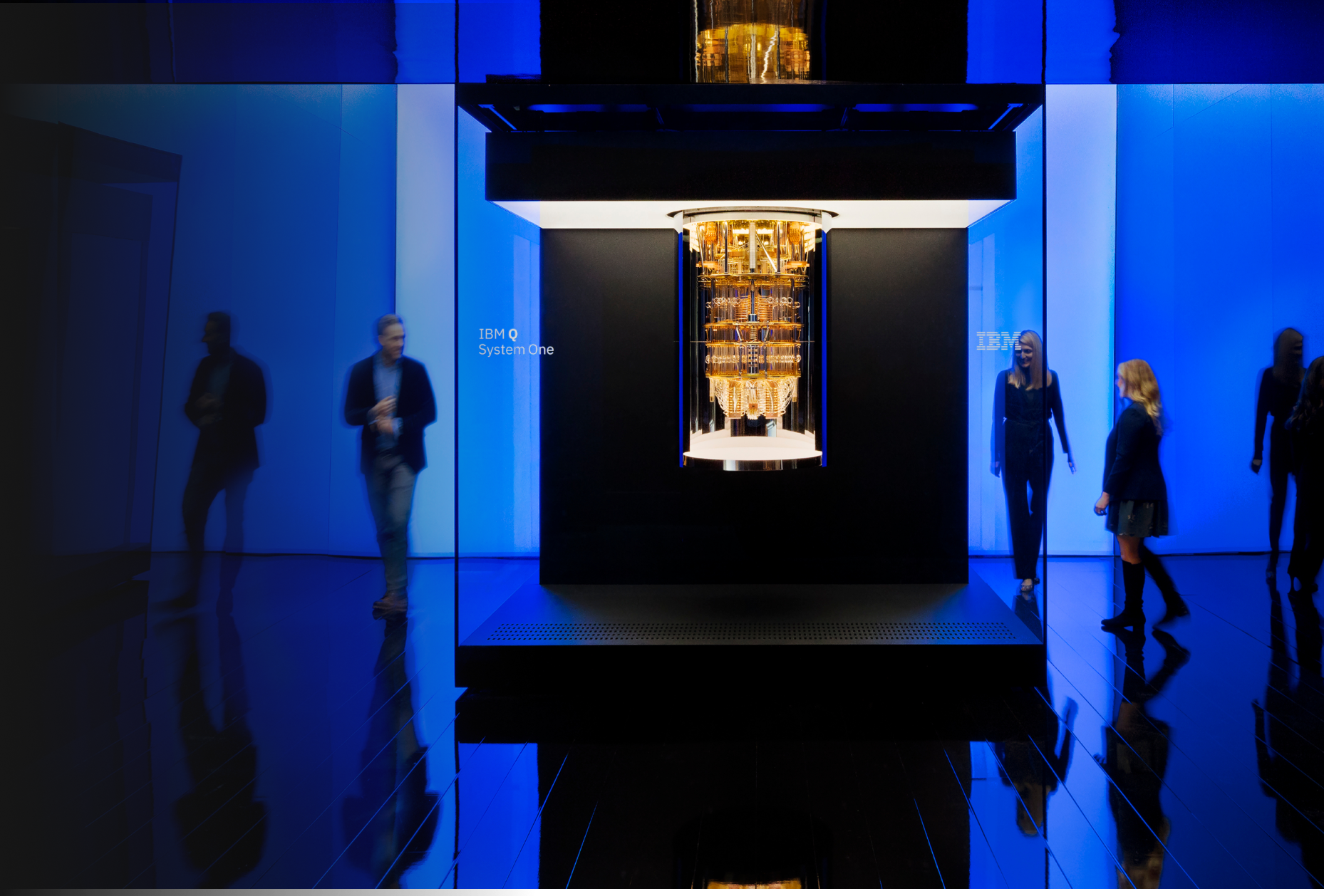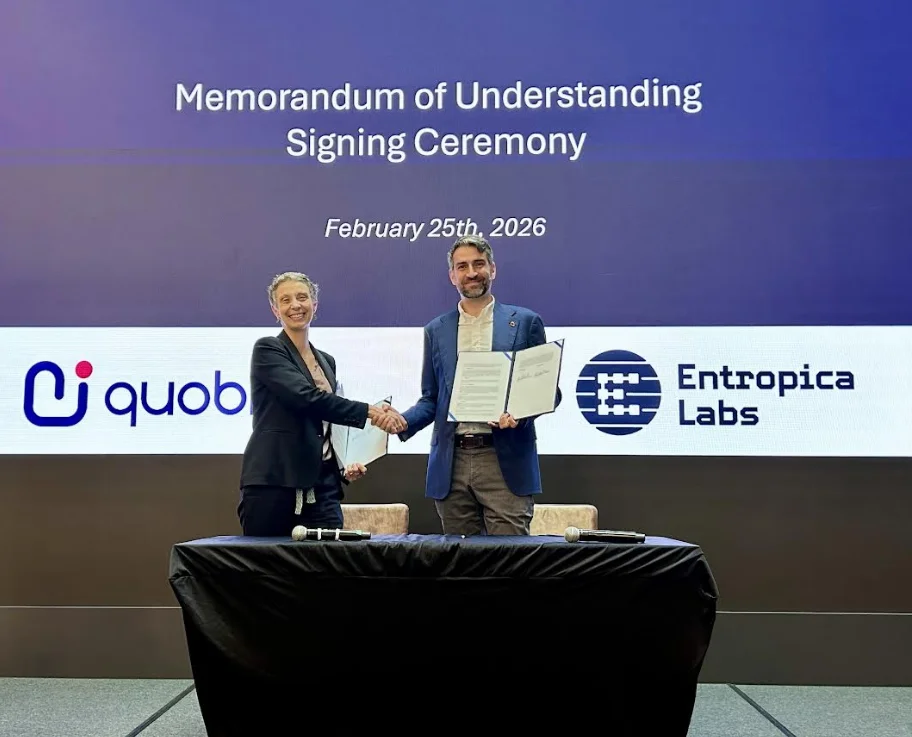
The first IBM Quantum System One installed in Europe is now available to companies and research organizations that wish to develop and test applied quantum algorithms and gather expertise, according to a company news release. In a joint project with IBM, the Fraunhofer-Gesellschaft will operate the quantum computer, installed in a center near Stuttgart, under German data protection law.
According to the organization’s website, the Fraunhofer-Gesellschaft, headquartered in Germany, is the world’s leading applied research organization. It focuses on developing key technologies that are vital for the future and enabling the commercial exploitation of this work by business and industry, including energy infrastructure, molecular biology, artificial intelligence and advanced computing.
The release states that, quantum computing will generate knowledge and create new opportunities in many sectors of industry within just a few years: for optimization and simulation, in logistics and transport, energy management, chemistry, medicine or materials science. There is broad consensus in Germany about the huge potential of this future technology. The political, industrial and scientific worlds are working to advance quantum computing to be able to solve practical problems more efficiently sometime soon. Until now, there has been no secure research platform on which companies and institutions can try out quantum-based research strategies, optimize their fields of application and develop the skills they need by training on the system. The quantum computer in Ehningen in Baden-Württemberg is now offering such a platform.
Setting a milestone for technological sovereignty
“If we want to actively help shape the fast-paced advancements in quantum computing, we in Germany must now develop the expertise required for the various application scenarios, as well as the compatible algorithms and the all important new business models,” said Prof. Reimund Neugebauer, President of the Fraunhofer-Gesellschaft. “With our platform around the IBM quantum computer and our Competence Network Quantum Computing, we are offering all companies and research institutions the opportunity to play an active part in advancing this future technology, gather the expertise they need to thrive in the quantum age and apply the newly acquired skills to good advantage.”

“Here at IBM, we are convinced that open technologies and an active and global community of developers, scientists and experts from industry, government and universities are the key to the success of the quantum computer,” said Gregor Pillen, General Manager IBM Germany, Austria and Switzerland. “The first installation of an IBM Quantum System One in Europe will accelerate progress in this field and give companies of all sizes access to the technology as they prepare to enter the quantum computer era.”
German Federal Minister of Education and Research Anja Karliczek said: “Quantum technologies will bring about lasting and fundamental changes in science, business and society. Quantum sensors, quantum communication or even quantum computing — all of these emerging technologies will enable solutions for those scientific, economic and social problems that have long seemed unsolvable. For example, quantum communication will make completely secure data transmission a reality. The German Federal Ministry of Education and Research promotes quantum technologies through its own initiatives and funding announcements, such as the QuNET project for completely secure communication, in order to facilitate the transfer of quantum technologies into everyday applications for business and society and to secure Germany’s and Europe’s technological sovereignty. I am doing all that I can to make sure that we decisively and quickly advance the critical field of quantum technologies and develop ready-to-use mature technology in Germany. The Federal Research Ministry can rely on the Fraunhofer-Gesellschaft and its institutes as an important partner in the German research landscape for this undertaking.”
Minister-President of Baden-Württemberg Winfried Kretschmann added: “The quantum computer is an important step for the state of Baden-Württemberg on its journey to successfully shaping key future technologies and meeting the challenges of the digital age. With this initiative, we are contributing to a German quantum technology ecosystem with international magnetic appeal, and setting a milestone for the technological sovereignty of Germany and of Europe. We want to use the opportunities quantum computing offers for applications in industry and science at the earliest possible stage. Quantum computers hold huge potential for the fields of research and experimentation: This technology can optimize traffic flows and logistical processes, analyze complex financial flows more efficiently, simulate new chemical models or accelerate innovations in the medical and energy sectors.”
State Minister of Economic Affairs, Dr. Nicole Hoffmeister-Kraut, says: “Baden-Württemberg has the benefit of an established network of excellent quantum science at universities and applied research institutions, as well as an internationally leading high-tech industry. With our knowledge, we are making a significant contribution to the progress and use of quantum computing. Quantum algorithms are opening up brand new opportunities and much more efficient approaches — in the engineering, material and data sciences for example. To develop these fields for profitable applications in our country, we are collaborating with Fraunhofer and IBM to create access to what is currently Europe’s most powerful quantum computer in Ehningen.”
By Fraunhofer
If you found this article to be informative, you can explore more current quantum news here, exclusives, interviews, and podcasts.















